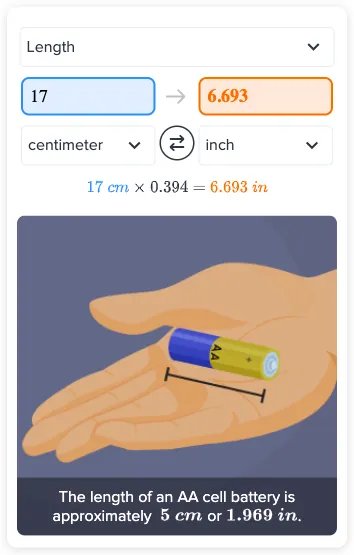Civil liberties and civil rights may seem interchangeable, but they hold distinct meanings in the realm of law and politics. While civil liberties protect individual freedoms from government intrusion, civil rights ensure equal treatment and opportunity for all. Understanding the nuances between the two is crucial in navigating the landscape of democracy and justice.
In this article, we delve deep into the question: how do civil liberties differ from civil rights? By exploring their origins, scope, and impact, we aim to shed light on these fundamental pillars of a just society. Let’s embark on this enlightening journey together.
How Do Civil Liberties Differ from Civil Rights?
Welcome, young learners! Today, we are going to explore an important topic that affects our everyday lives: civil liberties and civil rights. You may have heard these terms before, but do you know what they really mean and how they differ from each other? Let’s dive in and unravel the mysteries behind civil liberties and civil rights!
Understanding Civil Liberties
Civil liberties are the fundamental rights and freedoms that every citizen is entitled to, simply because they are human. These rights are outlined in our Constitution and are designed to protect individuals from government interference and ensure their freedom. Think of civil liberties as the rules that guarantee your personal freedoms and limit what the government can do to you.
Examples of Civil Liberties
There are several key civil liberties that are essential for a free and fair society. These include:
Freedom of Speech
Freedom of speech allows you to express your thoughts and opinions without fear of punishment. This means you can speak your mind, share your ideas, and criticize the government without facing consequences.
Right to Privacy
The right to privacy protects your personal information and ensures that the government cannot invade your privacy without a valid reason. This includes your home, personal belongings, and communications.
Freedom of Religion
Freedom of religion guarantees that you can practice any religion you choose, or none at all, without interference from the government. This means you can attend the church, mosque, temple, or synagogue of your choice.
Right to a Fair Trial
The right to a fair trial ensures that everyone has the right to a speedy and public trial by an impartial jury. This right is crucial in ensuring that individuals are treated fairly and justly under the law.
Exploring Civil Rights
Now, let’s shift our focus to civil rights. While civil liberties are about protecting individuals from government actions, civil rights are about ensuring equality and fairness for all people. Civil rights are the rights that protect individuals’ freedom from discrimination based on characteristics such as race, gender, or disability.
Examples of Civil Rights
There are several important civil rights that are aimed at promoting equality and protecting individuals from discrimination. These include:
Right to Equal Education
Every child has the right to receive a quality education, regardless of their background or circumstances. This civil right ensures that all students have equal opportunities to learn and succeed.
Right to Vote
The right to vote is a fundamental civil right that allows every citizen to have a voice in the democratic process. Voting ensures that everyone’s opinions are heard and that leaders are chosen by the people.
Equal Employment Opportunities
Civil rights laws protect individuals from being discriminated against in the workplace based on factors such as race, gender, or disability. This ensures that everyone has the opportunity to work and earn a living without facing unfair treatment.
Right to Housing
Access to safe and affordable housing is a basic civil right that ensures everyone has a place to call home. This right protects individuals from being denied housing based on discriminatory factors.
The Key Differences Between Civil Liberties and Civil Rights
While civil liberties and civil rights are closely related and both aim to protect individual freedoms, there are key differences between the two concepts:
Civil Liberties Focus on Limiting Government Power
Civil liberties are designed to restrict the government from infringing upon individual rights and freedoms. They set boundaries on what the government can do to its citizens and aim to protect people from government overreach.
Civil Rights Focus on Promoting Equality
Civil rights, on the other hand, are geared towards promoting equality and ensuring that all individuals are treated fairly and without discrimination. These rights aim to level the playing field and protect marginalized groups from being mistreated.
Civil Liberties are Individual Rights
Civil liberties are primarily concerned with the rights of individuals. They protect personal freedoms and limit government interference in the lives of citizens.
Civil Rights are Collective Rights
Civil rights, on the other hand, are collective rights that seek to ensure equality for groups of people who have historically faced discrimination. These rights focus on addressing systemic inequalities and promoting fairness for all.
Why Are Civil Liberties and Civil Rights Important?
Civil liberties and civil rights are essential elements of a democratic society. They protect individuals from government abuse, ensure equal treatment for all citizens, and promote a fair and just society for everyone. Without these rights, our freedoms would be at risk, and discrimination could go unchecked.
So, young learners, now you know the difference between civil liberties and civil rights. Civil liberties are the personal freedoms that protect you from government intrusion, while civil rights are the rights that ensure equality and fairness for all individuals. Remember, these rights are crucial for upholding a just and democratic society where everyone is treated with respect and dignity!
Civil Rights & Liberties: Crash Course Government & Politics #23
Frequently Asked Questions
What is the difference between civil liberties and civil rights?
Civil liberties refer to the individual freedoms protected by law, such as the right to free speech, privacy, and due process. Civil rights, on the other hand, are the rights that protect individuals from discrimination and ensure equal treatment under the law, such as the right to vote, work, and receive equal education.
How do civil liberties and civil rights impact individuals in society?
Civil liberties empower individuals to express themselves freely and engage in activities without government interference. Civil rights ensure that individuals are treated fairly and have equal opportunities, regardless of their race, gender, or other characteristics.
Can civil liberties and civil rights overlap in certain situations?
Yes, there can be overlap between civil liberties and civil rights. For example, the right to free speech is a civil liberty that can also protect individuals’ civil rights by allowing them to speak out against discrimination or injustice.
Are civil liberties and civil rights protected by the same laws?
Civil liberties and civil rights are both protected by the Constitution and various federal and state laws. While they serve different purposes, both sets of rights are essential for ensuring individual freedoms and promoting equality in society.
Final Thoughts
In summary, civil liberties refer to individual freedoms protected by law, such as freedom of speech and religion. On the other hand, civil rights focus on equal treatment and protection from discrimination based on characteristics like race or gender. The key distinction lies in civil liberties being about personal freedoms, while civil rights emphasize equal rights and opportunities for all. Understanding how civil liberties differ from civil rights is essential for upholding a just and equitable society.









